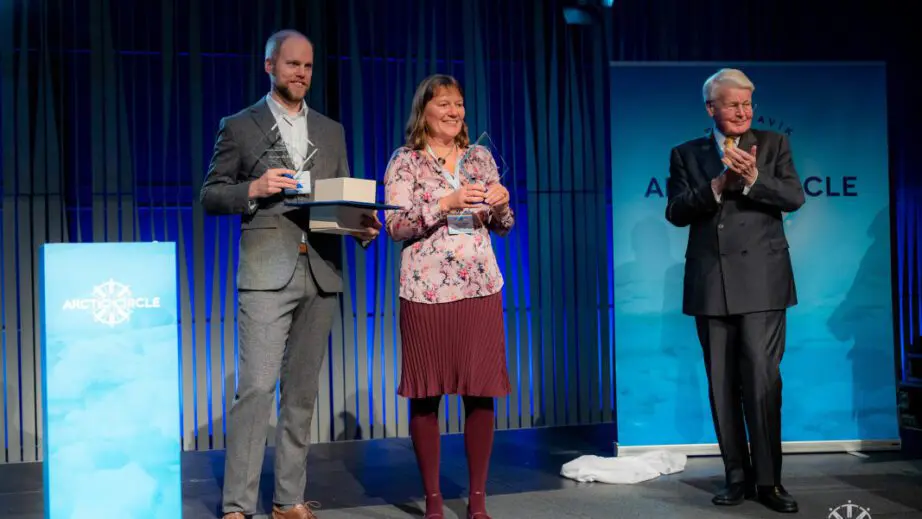Prestigious award to Arctic permafrost project led by UNIS
On October 14, Marius Jonassen and Hanne H. Christiansen from UNIS became the second recipients of the Frederik Paulsen Arctic Academic Action Award (FP Award). The award is both a high-level recognition and a 100,000-euro grant given to a project that transforms knowledge into action to help address the impacts of climate change in the Arctic.

The Jonassen-Christiansen team is working towards developing an advanced permafrost and meteorological climate change response system to build resilience in Arctic communities, starting with their own home community. Photo: Arctic Circle
The Jonassen-Christiansen team is working towards developing an advanced permafrost and meteorological climate change response system to build resilience in Arctic communities, starting with their own home community.
In 2016, two autumn rainstorms caused landslides affecting the local infrastructure in Longyearbyen. Authorities immediately called for assistance, and it became clear that Arctic scientific knowledge was useful for figuring out how to handle and ensure the safe operation of a society at 78N during the ongoing climatic change.
This led the research team to develop the PermaMeteoCommunity UNIS strategic pilot project which started in 2021, involving several local actors. The project focuses on building a real-time response system which connects direct observations from boreholes and small-scale meteorological stations with an online platform that receives and displays all the data in near real time.
– We passionately care about how the society we are living in is functioning, and how it is handling the effects of the recent large warming that have occurred, Jonassen says.
The system can be used for decision making and meaningful action by local authorities during operational evaluations and extreme weather events. In addition to serving authorities, the data is highly beneficial for the students and researchers living in Svalbard.
Supporting future development
– Winning the FP Award is a huge honour for us. It enables us to make more of our dreams come true in terms of studying and observing the permafrost and weather in the Arctic landscape here in Svalbard, Jonassen says.
The award is named after Frederik Paulsen who for decades has been a prominent supporter of scientific research and collaboration on the polar regions. The award is designed to recognize scientific and academic initiatives that are action-oriented and hold potential for addressing the challenges and critical needs posed by climate change.
The award will allow the team to enhance their monitoring system by adding valuable, additional data using cutting-edge modelling and remote sensing technology.
– We can have more students involved and increase international collaboration. In summary, it will strongly support us in developing a much safer way of living with climatic changes here in Svalbard, Jonassen says.
An important response system
The work that the team has put into the project will provide a critical tool for authorities to handle the climatic changes on the infrastructure and society. The project group hope the tool will be important in the developing of routines for handling preparedness situations caused by extreme weather such as autumn rainstorms.
As an area that has already seen severe landslides, Longyearbyen is an excellent test site for developing such technology. It also functions as a showcase for how to handle climate change to provide safer and better living conditions for the inhabitants; a challenge faced by many high-Arctic environments.
– We hope the response system can be used and tested in other Arctic settlements with permafrost, and thus the same type of challenges; Greenland, Canada and Alaska. We wish to collaborate with communities, scientists and students living or working in other Arctic permafrost areas. Such collaboration can happen through the UArctic Thematic Network on Permafrost and other UArctic venues, Christiansen says.
Jonassen and Christiansen are happy to see their efforts receive recognition in the form of the FP Award.
– It is extremely nice and important that what we are developing here for the main settlement of Longyearbyen in Svalbard, with respect to handling the effects of climate change on permafrost and its potentially hazardous impacts on society, is recognized as an important action, Christiansen says.